Growing up in a home where shouting was the norm can definitely shape the way you see yourself and the world, even long after you’ve left that environment.
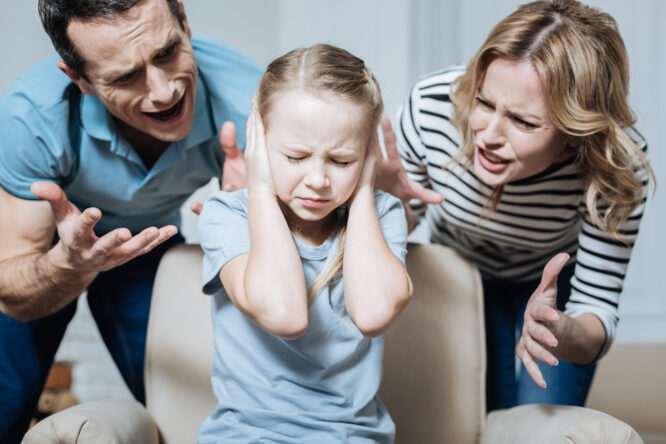
All that yelling doesn’t just hurt in the moment. As time goes on, it teaches a child to stay small, anticipate explosions, and question their worth. As adults, those early experiences often show up in subtle ways that don’t always seem directly connected. As adults, these behaviours are surprisingly common in people who were regularly yelled at as kids.
1. Apologising for things that don’t need apologies

People who grew up around constant yelling often learn to say sorry before anything goes wrong, just in case. It becomes a way to stay ahead of conflict, even if it’s not necessary. Apologising becomes more about avoiding backlash than taking responsibility.
In adulthood, this can look like constantly saying sorry for existing—bumping into someone, having needs, or simply speaking up. It’s not always about guilt. Sometimes it’s just habit built from years of walking on eggshells.
2. Overthinking everything before speaking
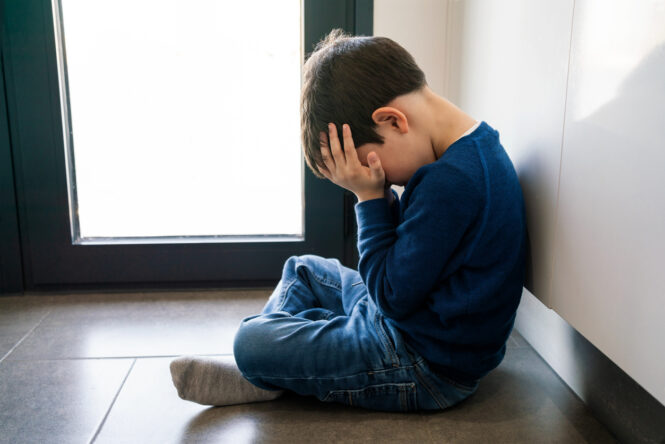
When yelling was a common response, it taught you to choose your words carefully—sometimes too carefully. You learned that saying the wrong thing, even accidentally, could set someone off. This can turn into a habit of mentally scripting every conversation in adulthood. You might second-guess your tone, your wording, or whether it’s worth saying anything at all. It’s exhausting, but it often feels safer than being misunderstood.
3. Feeling on edge around raised voices, even if they’re not directed at you
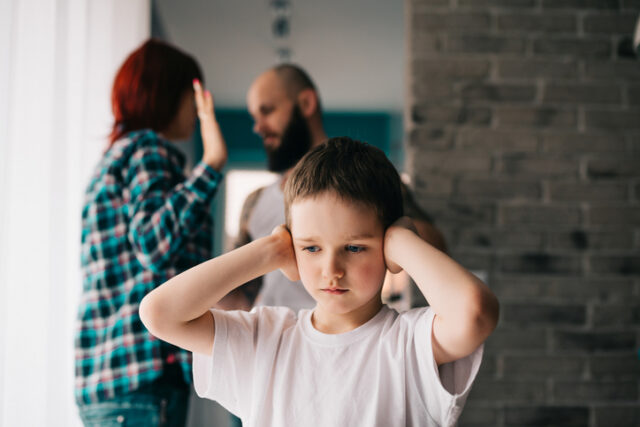
For someone who grew up being yelled at, a loud tone can trigger immediate anxiety. Even if it’s just two people having an animated chat, it can still cause that old knot in your stomach to show up without warning. It’s not about being sensitive; it’s a learned response. Your brain was trained to associate loud voices with danger, and that wiring doesn’t always fade just because you’re older now.
4. Struggling to trust your own instincts

When you were constantly yelled at, especially over small things, you started to doubt your judgment. It felt like, no matter what you did, it was wrong, so you learned to second-guess yourself just to be safe. As an adult, this shows up in decision-making. You might defer to other people too quickly, ask for reassurance constantly, or feel paralysed by simple choices. The fear of “messing up” lingers longer than most people realise.
5. Feeling responsible for other people’s emotions

If a parent’s yelling dominated the home, you may have learned that it was your job to keep the peace. You walked on eggshells, avoided topics, and tried to manage moods, just to prevent an explosion. Now, you might find yourself constantly scanning other people’s feelings and trying to adjust yourself to avoid conflict. You’re not trying to control anyone; you’re just trying to stay safe, the way you always have.
6. Being highly sensitive to criticism

When your mistakes were met with yelling, criticism stopped feeling like feedback. It started feeling like an attack. Even small comments now might feel heavier than they should because they hit an old nerve. That’s not dramatic; it’s a trauma response. Your brain might still be bracing for the worst, even when someone’s tone is neutral. It takes time to rebuild a sense of safety around correction.
7. Avoiding conflict at all costs
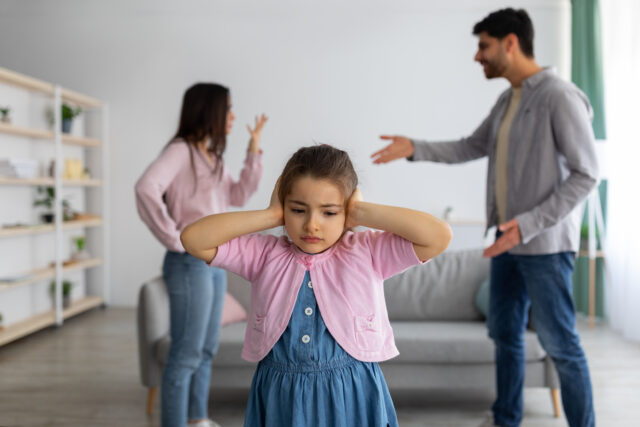
If conflict always turned into yelling, you may have learned to avoid it completely. Disagreements feel dangerous, not because you’re fragile, but because you were conditioned to expect escalation. This often turns into shutting down, people-pleasing, or saying “it’s fine” when it really isn’t. It’s a survival habit, not a personality trait, and it can be unlearned with time and safety.
8. Needing constant reassurance you’re not in trouble

Even as an adult, that old fear of being scolded can still linger. You might panic when someone texts “can we talk?” or assume the worst if someone sounds slightly off in their tone. This isn’t insecurity, per se; it’s about your nervous system still reacting to old patterns. Reassurance becomes a lifeline, not for validation, but just to calm that automatic fear of being yelled at again.
9. Struggling to feel safe expressing anger

If yelling in your childhood home always meant danger, you may have developed a fear of anger, especially your own. You learned to push it down, ignore it, or turn it inward because expressing it felt unsafe. Now, when you do get angry, it might come out awkwardly or not at all. You might feel guilty for even feeling upset. But anger, when expressed respectfully, isn’t bad—it’s a signal that something matters to you.
10. Being hyper-aware of tone and body language
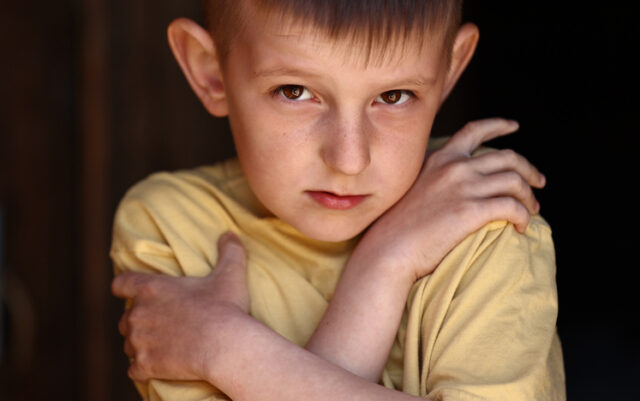
Growing up with yelling means you probably became an expert in reading the room. You noticed clenched jaws, changes in tone, or subtle changes that hinted something was about to go wrong. This skill often sticks with you. As an adult, you might pick up on things other people don’t, even when there’s no real threat. It’s not that you’re paranoid. You’re just used to being on high alert.
11. Feeling anxious when things are “too calm”

For some people, peace feels unfamiliar. If your childhood home was loud, tense, or chaotic, silence can actually feel unsettling. It’s not that you want drama; it’s that your nervous system doesn’t know how to rest. This can lead to overthinking or even self-sabotage. When things feel stable, part of you might wait for the other shoe to drop. That’s not you being negative; it’s your body trying to prepare for what it once knew too well.
12. Having a hard time standing up for yourself

When speaking up got you yelled at as a child, staying quiet became a form of protection. You may have learned that it was safer to go along with things than risk being told off, loudly and harshly. Now, saying no or expressing a boundary can feel terrifying, even when it’s necessary. It takes courage to unlearn that fear and start believing that your voice deserves to be heard without punishment.
13. Laughing or joking through uncomfortable emotions

Humour often becomes a coping mechanism when things get tense. If you learned to defuse yelling by lightening the mood, it might be your default now, even when you’re upset or struggling. People may see you as upbeat or easygoing, but underneath, there might be unresolved feelings that never had space to be taken seriously. You’re not being fake; you’re just used to using humour to survive discomfort.
14. Feeling like your needs are a problem

When every request or need was met with shouting or annoyance, you may have started to believe that needing anything at all was selfish or inconvenient. So now, you try to handle everything on your own. This leads to burnout, resentment, or quiet suffering. Asking for help might feel wrong, even when you desperately need it. Of course, needing support isn’t weakness. It’s human, and you deserve it like anyone else.
15. Struggling to fully believe you’re safe now
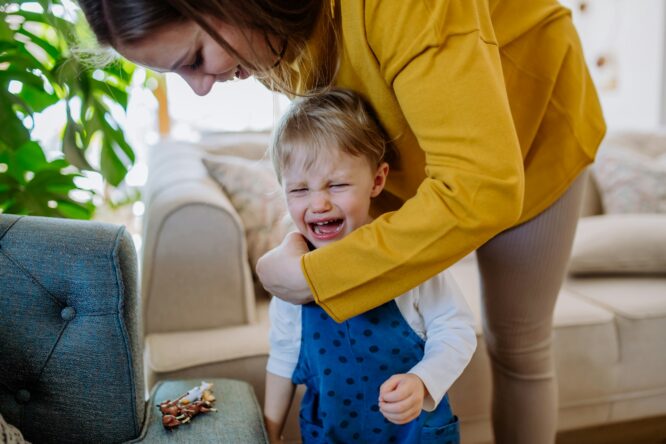
Even when your environment is calm, supportive, or loving, part of your body might not quite believe it. That tension lives deep in your system. It whispers that peace won’t last, or that something’s about to go wrong.
This kind of anxiety isn’t about logic; it’s about patterns your body learned early on. However, those patterns can change, slowly, with time, safety, and self-trust. You’re allowed to feel safe, and you’re allowed to keep healing, even if the process takes a while.




